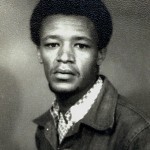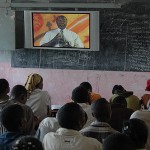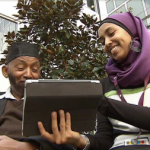 “An uninformed society is better than a misinformed one”
“An uninformed society is better than a misinformed one”
Negeri Lencho (PhD) is an assistant professor of journalism and communication at the post-graduate school of journalism, Addis Ababa University.
He sat down with The Reporter’s Yemane Nagish to oversee the ups and downs of Ethiopia’s practice on journalism, on which he did his PhD.
The Reporter: How do you see journalism in Ethiopia, it appears to rest at two extreme ends?
Negeri Lencho: I think there is a debate on whether journalism is a specific profession, like a medicine. It is quite different when looking at its precise nature. Medicine could be similar here and in America, or anywhere else in terms of a profession, but journalism differs from place to place according to the land’s politics and socio-economic issues. It looks after the land. In Ethiopia, democracy is still in its infancy and the society is also divided, in language, culture and perception. Since the profession is used to serve the people it should never be done in the way that it is done somewhere else. It should go in line with the situation here. Nevertheless, there should also be common trends, and principles that we need to share with others. For instance, there should be objectivism that governs the profession, even if the way we practice it is different. This is one of the issues that some people would like to talk about when it comes to professionalism, but it should be seen that we are dedicated to render comprehensive, quality and unbiased information.
How do you see the impact of democracy and development on the profession?
There is a huge impact indeed. There is no common consent among the media and state regarding the revolutionary democracy that the country has witnessed so far. This type of democracy has a massive impact on the ownership of the media. And, of course, it is different from the western world. In America and Britain the media is not under government control because of the type of democracy they follow. The British Broadcasting Corporation (BBC) is financed by the government in Britain but it’s managed by a neutral board. Since the media in Ethiopia is state-controlled it represents the parliament, and the management is also appointed by the parliament, so it is absolutely different from the BBC, which belongs to the general public in Britain. In our case, need the government and private media to serving the public better. And it may be meaningful as well that the parliament is representative of the general public.
Do we have media that belongs to the general public here?
I can answer yes if the state doesn’t interfere in the editorial policy. However, it doesn’t sound so when the state is involved in the nomination and appointment of management to influence the editorial board. It should be free all the way. And recruiting and positioning journalists should be another concern. If they are in favor of the state, the media is subject to be state-controlled. I asked those journalists hired by the state media how they differ from the privately hired ones, and the difference was visible. “Since we are in the government media we have to promote developmental polices, and that is all about what to do,” they replied. So, it looks pretty paralyzed, and they tend to be a mouth piece for the government, or like a spokesperson for the government, since their editorial policy is to carry out state policies and strategies.
Those who responded said that they are not compelled to produce media-oriented stories, such as investigations, as their editors are not interested. “We are encouraged at the editorial meeting, but they are unaccepted when they come up,” they said. We rarely see investigative programs on Ethiopian Television (ETV),which is unsatisfactory as those on the board are specifically chosen. They do not want to do these programs because of the budget, knowledge and capacity it requires. They tend to put themselves as developmental journalists, focusing on economic development to insure peace and prosperity.
How do you evaluate developmental journalism from the perspective of its theory and the status it holds in Ethiopia?
It doesn’t hold up well. There is the theory, but it doesn’t work on the ground. Developmental journalism seeks to spread the development at all levels, and holds those irresponsible as accountable. It shouldn’t just interpret development on an economic angle, there should be social and political developments too. Any development is a result of democratization; so good governance and rule of law have a stake in economic development. The trend here doesn’t follow this path. Whenever we talk about development there should be investigative journalism in place to keep it on track. Westerners used to call it ‘Advocacy journalism’, in favor of their well-built societies. If there is no investigative journalism, how can we find out about the destructive side of development? There can be corruption and power abuse in development. We teach that as well. This has been observed,like when the high-ranking government officials of the Custom authority were arrested on corruption charges. Which media organization uncovered this issue before the anti-corruption commission came up with its findings? What about the land-grab crimes committed by government officials, who discovered this ahead of sentence? The media should never play a role of guidance or advocacy; rather it has to find out about illegal deeds and corruption.
What do you mean by this?
The media has always been tied up with success stories, what the government has achieved. In the first place success is with the people, the government merely leads its people on the way to success. Without the presence of failure, development can never be absolute. When you criticize the government you are making it better, so the media should help by pointing out the failures. On the other hand, the media should focus on the public, who should be at the center. The media follows an upward-bottom approach, so government officials and others have a voice to be heard. Since development is in the people, the people should be prioritized.
Do you think the private media has been manipulated by the opposition,as it prioritizes issues relating to good-governance, human-rights and democracy?
I can tell you that not all private media is biased or tend to favor the opposition. There are some committed to professionalism. Generally speaking, we could say that its extremism is high, but this doesn’t come from its intent to support either side. When we look back at the May 2005 election, the majority took a position in favor of the opposition camp. There could be some now even. All I can point to is the unprofessionalism, and that the biased content instigated people to take on one another. Now, things are improving.
What can you say about the extremism and abuse caused by the media from your study?
My study shows how, and why, the polarization appeared. Journalists never had the professional identity they needed to have, and their attitude was influenced by the government’s approach to the matter. Today, there are some journalists working for the government media who see themselves as heroes, while feeling betrayed by those in the private sector. But the fact is that the principles should be in place, whoever is behind the ownership. The subject should be the people, and the truth. There is also a belief that the government wants to hire journalists so they can be derailed from their professional duty. The most complicated issue is the difference between private and government journalists. This trend must never influence editorial policy. The readership is another matter for those in the private sector who want to focus on issues other than development,which is the realm of the state media. There is a question of business there as well.
You said earlier that journalism takes after the land on which it’s practiced. Do you think the private media predicts the interests of its readership?
Yes. There is a habit to predict what really interests the readers. There is a question of survival too, needing good sales if they are not supported by a certain agent or group. It is obviously known who promotes the agenda of an opposition group. My study clearly shows that too. Again some are well-known so that they have to report against the government just to exist. Fana Broadcasting Corporate (Fana FM) does a better job relatively. After all, the problem should come from the bond that exists among the media. If there were stronger forums on the similarities or differences among the media it would lead to better journalism. Having a professional association of journalists, which all journalists would have to join,would help in this respect.
There is a new trend among some Ethiopian journalists to be politically motivated, can this work?
I can’t say a politically affiliated person can be a journalist because of the political motive of becoming an activist. A journalist does what the profession allows it to do, there shouldn’t be a personal motive. What we can understand right now is that a politically motivated person can be a journalist, and if arrested they might claim claim to be a journalist. I have to say that those who disguise themselves in the profession are responsible for the sluggish progress made in Ethiopian journalism. This was clearly seen during the May 2005 election. Free press is obeyed by the rule of law. Free press means doesn’t mean above the law. It has a responsibility to the public. As a citizen, I felt sorry then. We were on the brink of having a civil war due to an irresponsible press. It was a bad experience for the media of Ethiopia.
Where do you put the private media in terms of the democracy process in the country? Is it constructive?
It will be difficult to judge if we can’t see it in a time frame. During the 2005 election they played an important role in making people become politically aware, yet at the same time some of them attempted to misguide too. A misinformed society is dangerous. The media can be a big tool in mobilizing the people. If it’s honest and presents facts, then it will be helpful, but if it fails to do this it will become destructive. I heard people after the election saying that they should never have voted because they were misinformed. It looks better post-May 2005 election in that there is at least a smooth relationship among the people. So I should say that a society is best when it is fully and truly informed, otherwise an uninformed society is better than a misinformed one. The misinformed one has the power to cause destruction and become a threat to others. I don’t mean that an uniformed society is needed, but it should be well informed.
TheReporterEthiopia.com
Negeri Lencho(Ph.D.)






















![Police in Addis Ababa arrested Ethiopian woman for wearing fake butt pads [Satire] Police in Addis Ababa arrested Ethiopian woman for wearing fake butt pads [Satire]](https://www.ethiopianopinion.com/wp-content/plugins/top-10/timthumb/timthumb.php?src=http%3A%2F%2Fwww.ethiopianopinion.com%2Fwp-content%2Fuploads%2F2014%2F04%2FUnknown-150x150.jpg&w=&h=&zc=1&q=75)





Join Conversations